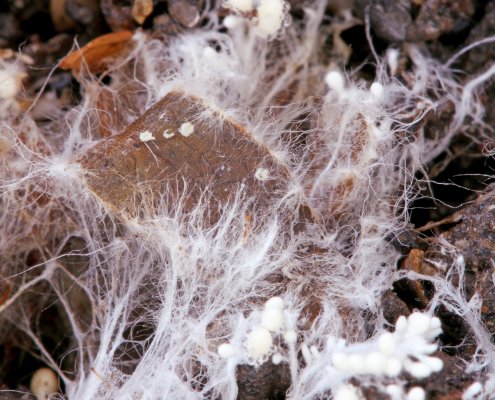70-year-old coffee-killing fungus brought back to life to fight the disease
by Imperial College London
Researchers have re-animated specimens of a fungus that causes coffee wilt to discover how the disease evolved and how its spread can be prevented. Coffee Wilt Disease is caused by a fungus that has led to devastating outbreaks since the 1920s in sub-Saharan Africa, and currently affects two of Africa’s most popular coffee varieties: Arabica and Robusta.
The new research shows that the fungus likely boosted its ability to infect coffee plants by acquiring genes from a closely related fungus, which causes wilt disease on a wide range of crops, including Panama disease in bananas.
Lead researcher Professor Timothy Barraclough, from the Department of Zoology at Oxford and the Department of Life Sciences at Imperial, said: “The historical approach shows us what happens to a plant pathogen before and after a new outbreak of disease occurs. We can then study the mechanisms of evolution and improve predictions of how similar outbreaks could occur in the future.
“Our aim is to replicate this study for many plant pathogens, eventually drawing up a ‘rule book’ of how pathogenicity evolves, helping us to prevent future outbreaks where possible.”
> Source: PHYS.ORG



 Canva @ Alex Cantarelli /CC0 Public Domain
Canva @ Alex Cantarelli /CC0 Public Domain Credit: Canva @ natthawut /CC0 Public Domain
Credit: Canva @ natthawut /CC0 Public Domain